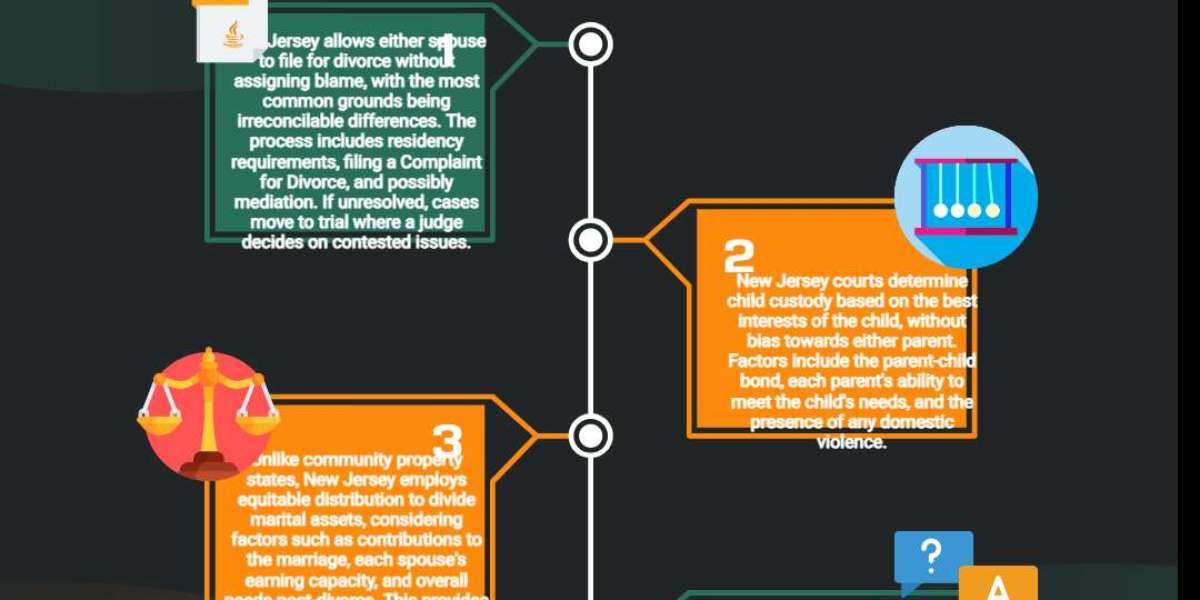Divorce can be a complex and emotionally charged process. In New Jersey, understanding the state’s divorce laws is crucial for anyone considering separation. These laws govern everything from property division and child custody to spousal support and legal grounds for divorce. Here’s an overview of the key aspects of divorce laws in New Jersey.
No-Fault Divorce in New Jersey
New Jersey is a no-fault divorce state, meaning couples can file for divorce without blaming either party. The most common grounds for no-fault divorce are “irreconcilable differences.” To file under these grounds, you must demonstrate that the differences have lasted for at least six months and there’s no reasonable prospect of reconciliation.
Alternatively, a no-fault divorce can also be filed after 18 months of separation, where the couple has lived apart with no intent to reconcile.
Fault-Based Divorce
Although no-fault divorces are more common, New Jersey also allows fault-based divorces. Grounds for fault-based divorce include:
- Adultery
- Extreme cruelty (mental or physical abuse)
- Desertion (for 12 months or more)
- Drug or alcohol addiction
- Imprisonment (for 18 months or longer)
- Institutionalization (mental illness for 24 months) While citing fault can complicate the process, it may influence decisions about alimony or child custody in certain cases.
Property Division
New Jersey follows the principle of equitable distribution, meaning that marital assets are divided fairly but not necessarily equally. The court considers several factors when dividing property, such as the length of the marriage, the financial situation of each spouse, and contributions to the marriage, including homemaking.
It’s important to note that only marital property — assets acquired during the marriage — is subject to division. Property owned by either spouse before the marriage or inherited during the marriage usually remains with the original owner.
Alimony
Alimony, or spousal support, may be awarded to ensure that both spouses can maintain a standard of living similar to what they enjoyed during the marriage. New Jersey courts consider factors like the length of the marriage, the income and earning potential of each spouse, and the age and health of both parties when determining alimony.
Types of alimony in New Jersey include:
- Open durational alimony (for long-term marriages)
- Limited duration alimony (for shorter marriages)
- Rehabilitative alimony (to support a spouse while they become financially independent)
- Reimbursement alimony (to compensate for contributions like education or training costs)
Child Custody and Support
In New Jersey, child custody is determined based on the best interests of the child. Courts encourage joint custody arrangements unless circumstances suggest otherwise. Child support is typically calculated using state guidelines that consider both parents’ incomes, the number of children, and the custody arrangement.
Conclusion
divorce laws in New Jersey aim to create a fair and balanced process for both spouses. Whether filing for a no-fault divorce or citing specific grounds, understanding these laws will help you navigate the complexities of divorce with greater confidence. Consulting with a knowledgeable New Jersey divorce lawyer can further ensure your rights are protected throughout the process.







